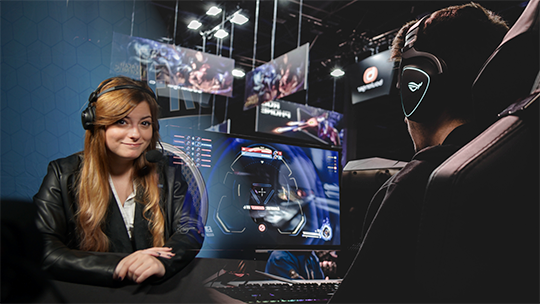“The Playful Kraken” – Part 6: The Preliminary Results?

This blog begins to answer the question: What were the results of this preliminary research, aka the plunge into the Game Industry Education?
Realizations and Conclusions
Based on the discussions, seminar, mind mapping, and resource hunting it became noticeably clear that there is much uncertainty and incoherency in the terminology, and the whole Game Industry structure, as well as its theoretical basis. This is detrimental to the whole Game Industry, its development and education. The discussions unanimously revealed the requirement to have a clear structure and a well-established terminology for the Game Industry, as the current situation could be described as “chaotic”. The task of this magnitude and importance is too large for one person alone. Defining the Game Industry must include experts from different Game Industry fields, Game Industry companies and entities, and Game Industry educators and institutes. Therefore, there must be at least one big project for clarifying the roadmap and steps. As a personal note, there will be a project to create the preliminary version of the Game Industry ABC, which will establish a framework and structure that can be filled with detailed information. For this purpose, there is a personal need to investigate the different options for approaching the writing of a book, or other publishable entity.

Other Interesting Topics
These interesting topics were identified during the discussions comparing the virtual and the face-to-face approaches in education:
- Virtual is not all bad if done correctly -> Virtual can be done, and can even be efficient (Koskenkorva, 2006)
- How do Game Industry companies use virtual working possibilities? -> What and how have things changed?
- Covid changed the “normal” -> Remote work is here to stay (pros and cons)
- Virtual communities vs normal student groups -> What needs to change and why?
- How does online teaching help/hinder learning? Or does it?
- Taking advantage of the online and face-to-face possibilities -> What is the optimal virtual / face-to-face working ratio?
- 50/50 ratio? -> This would also free teachers to teach in different institutes while providing an opening for a new work force in the contact teaching (Good or bad?)
Suggestions
There were several suggestions based on the discussion, seminar, mind mapping, and resource hunting. Firstly, there would be a need to add more roles to the Gamebadges (Pelimerkit, 2020), because it is called the Game (or Gaming in their case) Industry, not just game development and production. At least one forgotten role is the Implementer, who works with the various functionalities of game engine and specific available assets. Because of the increasing complexity of game engines and available assets, just the “middleware” knowledge is not sufficient anymore. There are also all the missing roles from ESports to gambling (see Game Industry Structure).

There is a heightened need for collaboration between Finnish and global education institutes in RDI projects and education. With collaborative efforts we would be providing more information and possibilities relating to the whole Game Industry. It is also impossible to know all the structures, tools, policies, and processes without the companies that use them. The ideal situation would be connecting every education institute to provide a more extensive curriculum, but the current problems of politics, personal relations, and competition for the same students are counterproductive. And, of course, finally we should be considering what style of teaching would be provided in various locations and through different resources, and which of those styles might fit the Game Industry. How can we provide high quality and reliable education if we do not have a reliable structure to base our teaching on? Help us create the base for a better future Game Industry.
Writer

Risto Koskenkorva (Certified Professional Teacher (JAMK), M.Sc – IT (JYU), Game Industry Veteran) works as a senior lecturer in Jamk BIT Game Production. Specialized in Game Industry (Game Development, Game Production, Game Programming, Game Engines, 3D Art & Animation, Game Publishing, Game Entrepreneurship, and Leadership & Management).
References
Koskenkorva, R. (2006, December 20). Menestyksekkään peliprojektin johtaminen eli Peliprojektin säännöt [Thesis: Leading a successful game project aka The Rules of the Game Project]. http://urn.fi/URN:NBN:fi:jyu-202009115837
Pelimerkit. (2020, June 30). Gamebadges [kumu.io based map of competence-based open badges for the gaming industry]. Retrieved June 2, 2022, from https://kumu.io/-/209159#map-WoYEQUtu
Read the other parts of ”The Playful Kraken” series: